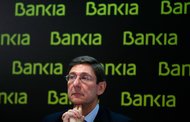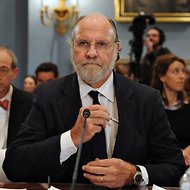LOS ANGELES — Hollywood expected a box-office drag race to end them all for the Memorial Day weekend, with two huge-scale sequels, both in categories most popular with younger men, opening in rare direct competition. But it turned out to be no contest at all.
“Fast Furious 6” raced to a projected $122.2 million in ticket sales for the four-day period, easily enough claiming the No. 1 spot at North American movie theaters, while “The Hangover Part III” blew a tire and overheated, taking in a disappointing $63.8 million since its arrival on Thursday. Despite the collapse of “The Hangover” — Part II took in $135 million over its first five days in 2011 — it was still a very good weekend for studios and theater owners.
Analysts projected total sales in North America of $323 million for the holiday period. That would surpass the previous high mark for the same stretch, in 2004, when “Shrek 2,” “The Day After Tomorrow” and “Troy” contributed to $303.1 million in total sales after adjusting for inflation, according to Hollywood.com, which compiles box-office data.
“Star Trek Into Darkness” (Paramount) was projected to take third place for the weekend, with ticket sales of about $48 million, for a two-week domestic total of $156.8 million. A new animated movie, “Epic” (20th Century Fox), was expected to place fourth, taking in a solid $44 million; it cost Fox about $93 million to make. And “Iron Man 3” (Disney) is anticipated to add $24.6 million to its pockets, for a four-week total of $372.7 million.
The differing fortunes of “Fast Furious 6” (Universal) and “The Hangover Part III” (Warner Brothers) offer a window into movie franchise management in the social-media age. Ticket buyers — even the highly forgiving ones who power the summer blockbuster season — no longer appear willing to tolerate color-by-number sequels.
“The Hangover Part II” received poor reviews and word of mouth, but most critics truly hated Part III, as evidenced by its positive score of only 21 percent on the review-aggregation site RottenTomatoes.com. “Fast Five,” meanwhile, delighted a majority of critics and generated positive chatter on Twitter and Facebook; “Fast Furious 6” kept the quality going, receiving a 72 percent positive rating on RottenTomatoes.
“You cannot take anything for granted anymore,” said Nikki Rocco, Universal’s president for distribution about “Fast Furious 6.” “We never let up on this movie for one minute.”
Universal and a financing partner spent about $160 million to make “Fast Furious 6” and at least another $100 million to market it. The movie, which has a multiracial cast led by Vin Diesel, Michelle Rodriguez and Dwayne Johnson, was a smash among minority audiences; 32 percent of ticket buyers were Hispanic. Overseas, it was No. 1 in 59 countries, taking in $158 million, for a global total of $280.2 million.
“The Hangover Part III,” which cost Warner and Legendary Pictures about $103 million to make and was backed by a similarly costly marketing campaign, opened in three foreign countries over the weekend, taking in about $19.2 million. “The Hangover Part II” took in a total of $332.3 million overseas — an astounding amount for an R-rated comedy — and international ticket sales for “Part III” are also expected to be strong.
A Warner spokeswoman did not have an immediate comment about the movie’s North American performance.
Article source: http://www.nytimes.com/2013/05/27/movies/fast-furious-6-opens-as-huge-hit.html?partner=rss&emc=rss




